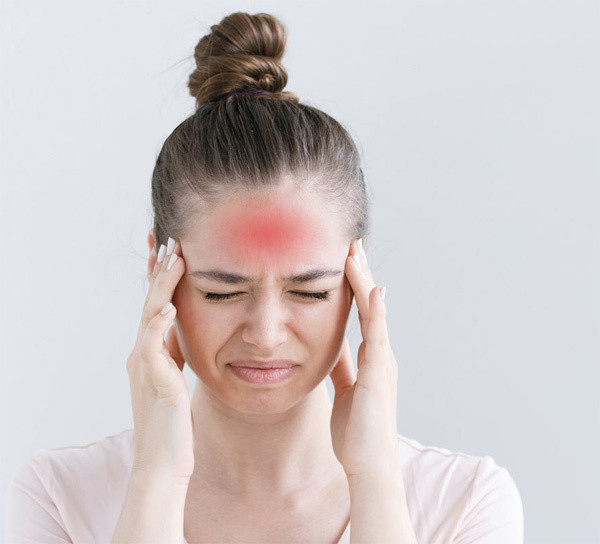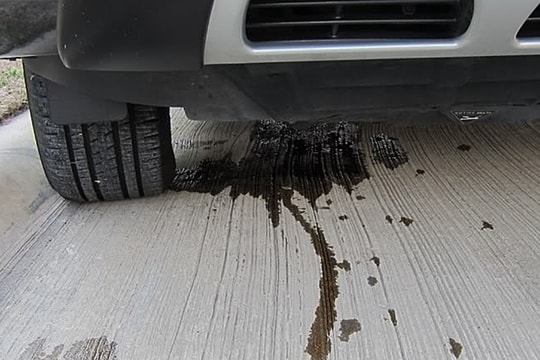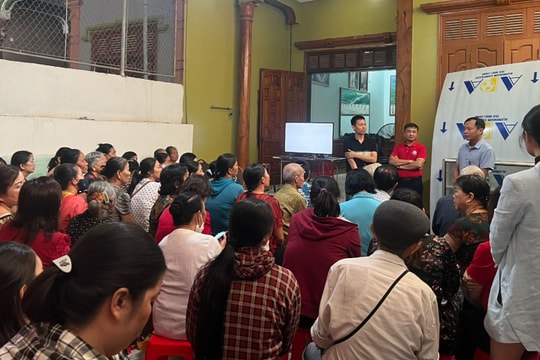Dizziness after Covid-19 and frequently asked questions
Covid-19, like many other viruses, can affect and damage the nervous system, inner ear and vestibular system, causing dizziness.
Doctor Le Minh Ky, Head of the Department of Otorhinolaryngology, Tam Anh General Hospital Hanoi, answers common questions about dizziness symptoms in F0 patients who have recovered from the disease.
Why do I get dizzy after Covid-19?
Covid-19affects the nervous system, causing neurological symptoms such as insomnia, depression, anxiety, vestibular disorders, of which the most common is dizziness.
Dizziness is the feeling or illusion of movement of the body or surrounding objects when there is actually no movement. The most common feeling is spinning accompanied by nausea, unsteadiness, and gait deviation, which can start or worsen when moving the head. Vertigo can be very short, just a few seconds, or last for several days or weeks, with very different manifestations from mild to severe. Patients may only experience transient dizziness when changing head position, or a feeling of unsteadiness when walking, loss of balance, or even episodes of the house tilting and spinning accompanied by nausea and vomiting...
Is it dangerous?
This depends on the location and extent of damage caused by the virus. There are lesions that heal on their own after the symptoms of the virus have disappeared, such as unilateral vestibular neuritis. In this condition, the vestibular nerve has been damaged, but over time, the central vestibular system will compensate, the patient may not recognize the difference in balance and the dizziness will go away.
 |
| Dizziness after Covid-19 affects the nervous system. Illustration: Hawaiipacifichealth |
Some diseases such as vestibular neuritis (Ménière's), benign paroxysmal positional vertigo (BPPV), labyrinthitis (bacterial infection in the inner ear), central vestibular focal lesions, severe and recurrent symptoms, causing gradual loss of vestibular function and hearing, sudden severe vertigo, even stroke...
After recovering from Covid-19, if you have any neurological problems such as dizziness, loss of balance, tinnitus, or hearing loss, you should see a doctor. The sooner you get treatment, the higher your chances of recovering inner ear and vestibular function.
How long does it last?
Symptoms of dizziness can occur at the same time as Covid-19 infection, or several weeks after infection. The duration of symptoms depends on the structural damage to the vestibular system of each patient. Dizziness is generally a common side effect of acute Covid-19.
In many cases, they disappear when other Covid-19 symptoms disappear. Most dizziness lasts a few weeks to a few months. However, the pandemic is only about two years old, so it is not yet possible to assess how long its effects will last. So far, many patients say their symptoms have not improved.
Can it heal itself?
Most mild dizziness caused by Covid-19 will usually disappear on its own when other typical Covid-19 respiratory symptoms disappear without any treatment. However, depending on the location and extent of vestibular damage, or damage to organs other than the vestibular caused by the virus, dizziness can go away on its own or become prolonged and require medical intervention.
People with vestibular disorders, will Covid-19 make their illness worse?
Covid-19 can trigger vestibular conditions in patients with BPPV, Ménière's disease, vestibular neuritis... in the remission or stable phase. The virus causes metabolic disorders in the inner ear, so it can cause a recurrence of BPPV, aggravate Meniere's disease and other vestibular diseases.
Some patients, after prolonged treatment for Covid-19, using antiviral drugs, antibiotics and being bedridden for a long time, also have impaired vestibular function.
How to reduce dizziness
During an acute attack: When experiencing an acute attack of dizziness, limit movement and rest in bed. Focus on a fixed point in front of you; try to hold on to or lean on surrounding surfaces; stay calm and avoid stress because anxiety will increase the symptoms. In addition, you need to have a nutritious diet, drink plenty of water, avoid alcohol and tobacco, and use a high pillow when sleeping.
Outside of an acute attack: After contracting Covid-19, if you have prolonged dizziness, you should do light activities such as walking, moving in place (turning your head, standing up/down frequently, standing and turning around...). These are good ways to stimulate the vestibular system and help the body recover faster.
It is necessary to distinguish between acute dizziness caused by functional vestibular system disease, which is not life-threatening, and acute dizziness caused by cerebellar stroke, which can be life-threatening. Therefore, when acute dizziness occurs after Covid-19, the patient needs to go to the hospital for examination and early treatment to avoid unfortunate complications such as stroke.







